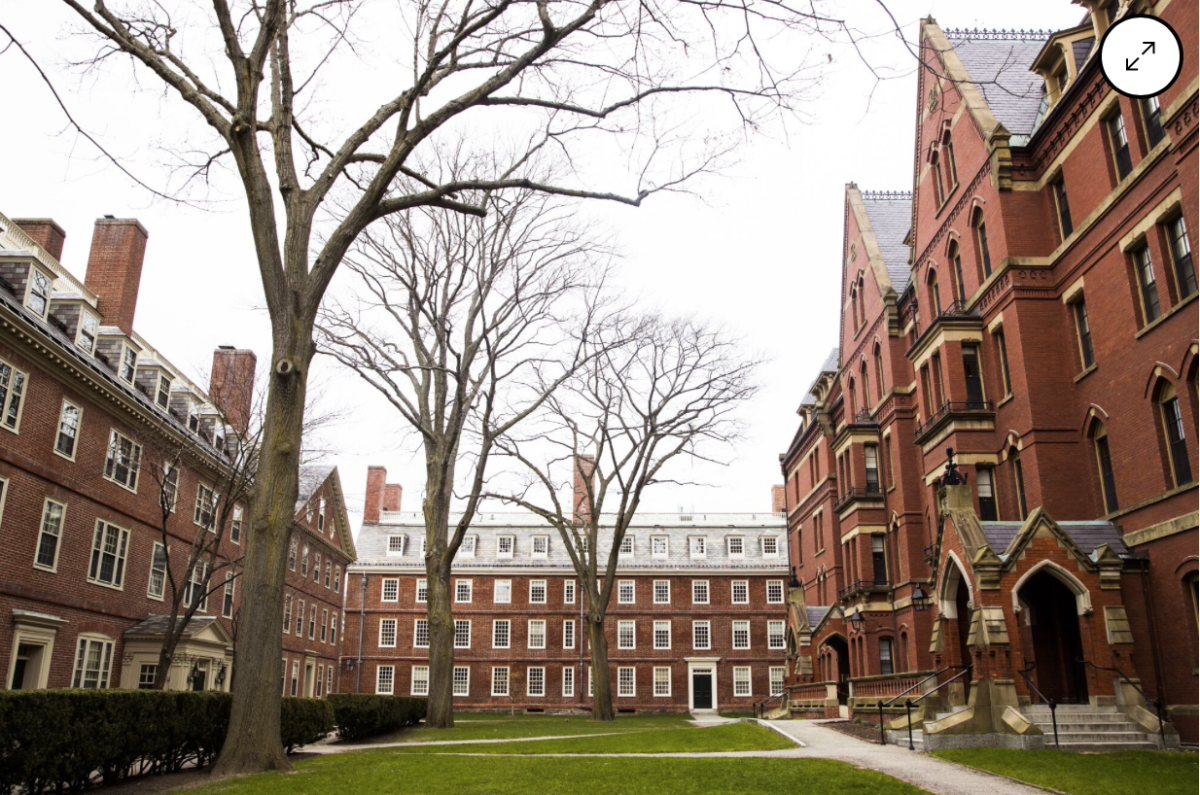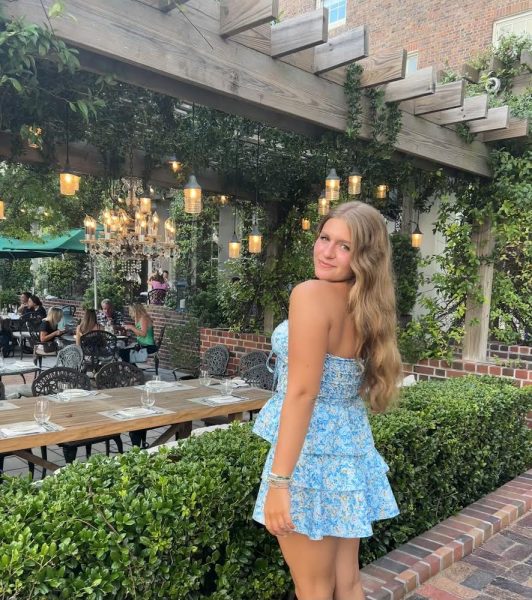As a Jewish-American teenager, I have always found it difficult to identify myself. While I am Jewish, I am certainly not as religious as some of my conservative Jewish friends. While I am European, my lineage is so difficult to trace, and I feel it is a disservice to identify with individual countries that have abandoned my ancestors throughout history. So, I am American.
Jewish history is a long line of brief stability. From the Babylonian conquest to the Roman conquest to Nazi Germany, the Jewish people are quite familiar with hostility. Jews have always been outcasts—easy to point fingers at. Easy to force out. America, however, is different. For Jews, America is not just a land full of promise—it is a symbol of eternal peace. Many Jewish-American families, including mine, are testaments to these ideas.
Throughout my childhood, my grandmother would recount my family’s Holocaust story. My great-grandmother Joan and her husband, Julius, fled Nazi Germany then came to America in 1947. As a young girl, I heard my Jewish community chant “Never Again,” but my family’s history never fully resonated with me. I was an American, generations away from the Holocaust. I could never comprehend Jewish hate because I never faced it.
On October 7th, 2023, my family watched—our eyes glued to the screen—as Hamas and Israel broke out into war. I never could have predicted the wave of hate that was about to hit the Jewish community.
Soon after October 7th, a very strong anti-Israel movement spread globally. Along with this, an even stronger anti-Jewish movement. Antisemitic rhetoric spread like wildfire: Swatzticas were paraded through college campuses and major protests, and people chanted “Gas the Jews.” My whole life, I could never understand how anti-Jewish hate spread so vastly during WWII. I finally understood—and shared—the fear of my ancestors.
My family dreamed of an America where I could walk through streets proudly with a Star of David around my neck. Now, I open my phone to the New York Times every morning only for the color to drain out of my cheeks and my appetite to vanish. Headlines overwhelm me: “Neo-Nazis Parade Swastikas in Madison, Wisconsin,” “Cornell University student threatened to stab and rape Jewish students,” and “Harvard Shrugs at Antisemitism.” This is not the America my great-grandparents dreamed of.
Next year I will be a freshman at an American University. Every school I applied to has encountered antisemitic threats since October 7th. I am terrified, but I am not alone.
“I feel a lot of pressure to navigate campus life as a Jew without my parents’ protection. As I grow independent, I will learn to take on-campus safety into my own hands. Relying on a school to protect their Jewish population seems to be less of a given nowadays,” shares Jewish senior Adrielle Kobin. “I am fearful of just blatant antisemitism on campus, but I am trying to find a supportive Jewish community on campus, too,” Kobin explains.
“I feel like there’s a lot of hatred towards Jews, and I’m genuinely scared because people have used these Israel wars to justify Jewish hate,” shares Jewish senior Jayden Ovadia. “There’s a lot of pressure for Jewish students to find community for safety reasons, but why should any student feel unsafe because of their religion?”
Are the stories as bad as the headlines paint them? Is our fear legitimate? According to the Anti-Defamation League, in the 2023-2024 academic school year, 73% of Jewish college students surveyed have experienced or witnessed some form of antisemitism, and the average monthly rate of antisemitic incidents witnessed by Jewish students has increased twenty-two-fold from that before this academic school year. These numbers spell out “danger.”
Cornell University experienced an outward antisemitic attack when threats were posted to a chat forum called “Greek Rank” in late October. Greek Rank is a popular forum amongst students in all schools that discusses Greek life. These posts threatened to “shoot up 104West!,” a kosher dining hall for students connected to the Center for Jewish Living (CJL). The posts also called Jews many derogatory terms like “pig,” and they threatened to assault and rape Jewish students.
South High Alumni Amanda Roth, and Freshman at Cornell University recounted her experience through this troubled time for Cornell students: “ I was shocked at how alive and common anti-semetism was on my campus. What was most troubling was the lack of empathy. Regardless of one’s position on this topic, I would expect everyone to condemn the killing, raping, and kidnapping of innocent civilians,” Roth explains. “All of the Jewish students on campus were scared for their lives. Jewish Greek life houses were locked in and so were students at CJL.”
As for her personal experience, she was never physically threatened; however, she did take precautions to ensure her security on campus. “My friends and I debated going to class the next day. We didn’t know if it was safe. We promised each other and our parents that we would always walk with a buddy, and not walk outside too late at night.” Luckily, Cornell responded quickly and efficiently to the threats and protected their Jewish students. “The Cornell University Police Department and FBI worked together to find the source of these threats and he was arrested a few days later.”
Aviv Shachi, another Jewish South High Alumni at George Washington University, explained that his campus also experienced threats of antisemitism, including vandalism on their Hillel and harassment of pro-Israel students. “I do think that it is justified for Jewish freshmen to be fearful of going to college. College campuses are hotspots for differing opinions, and unfortunately, many people have formed opinions against Jewish people during this war,” he explains.
For Jewish students, the battle is never-ending. On December 5th, the presidents of Harvard, MIT, and the University of Pennsylvania were questioned by congressional politicians upon heavy antisemitism on campus. Their carefully worded responses did not fully condemn hate speech against Jews. After being questioned if “calling for the genocide of Jews violated the school code of conduct,” the president of UPenn answered: “It is a context-dependent situation,” a clear warning to Jewish students alike that they are not fully protected by universities. The president of the University of Pennsylvania, M. Elizabeth McGill, has since resigned.
Antisemitism has reached record heights on campus, and Jewish students have the right to be fearful. I lack military expertise regarding the war in Gaza. I am not here to make a statement on the ongoing conflict in the Middle East, nor do I intend to. I do, however, believe in progressivism and inclusivity. As a Jewish teenager, I grew up valuing peace, compassion, and diversity. Antisemitism will never be the answer, and will only move us backward as a society.









